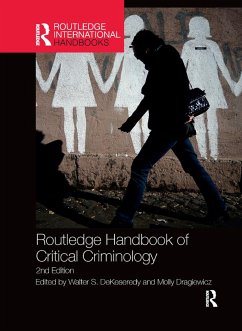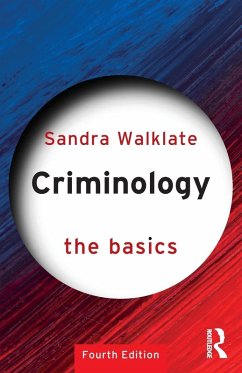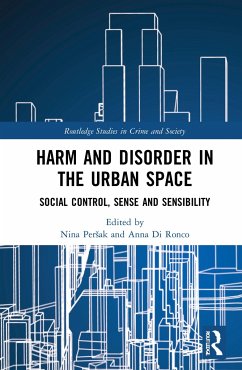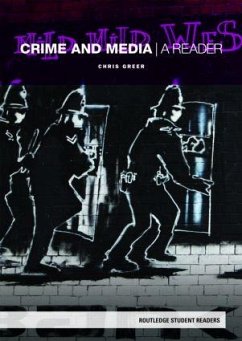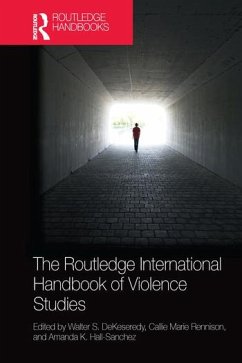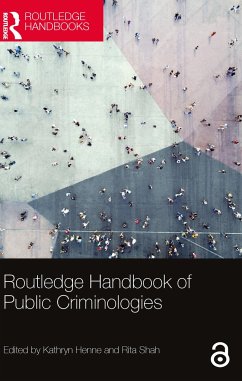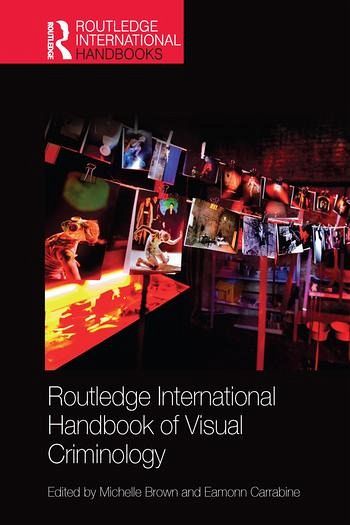
Routledge International Handbook of Visual Criminology
Versandkostenfrei!
Versandfertig in 6-10 Tagen
51,99 €
inkl. MwSt.
Weitere Ausgaben:

PAYBACK Punkte
26 °P sammeln!
Dynamically written and richly illustrated, the Routledge International Handbook of Visual Criminology offers the first foundational primer on visual criminology. Spanning a variety of media and visual modes, this volume assembles established researchers whose work is essential to understanding the role of the visual in criminology and emergent thinkers whose work is taking visual criminology in new directions.This book is divided into five parts that each highlight a key aspect of visual criminology, exploring the diversity of methods, techniques and theoretical approaches currently shaping t...
Dynamically written and richly illustrated, the Routledge International Handbook of Visual Criminology offers the first foundational primer on visual criminology. Spanning a variety of media and visual modes, this volume assembles established researchers whose work is essential to understanding the role of the visual in criminology and emergent thinkers whose work is taking visual criminology in new directions.
This book is divided into five parts that each highlight a key aspect of visual criminology, exploring the diversity of methods, techniques and theoretical approaches currently shaping the field:
- Part I introduces formative positions in the developments of visual criminology and explores the different disciplines that have contributed to analysing images.
- Part II explores visual representations of crime across film, graphic art, documentary, police photography, press coverage and graffitiand urban aesthetics.
- Part III discusses the relationship of visual criminology to criminal justice institutions like policing, punishment and law.
- Part IV focuses on the distinctive ethical problems posed by the image, reflecting on the historical development, theoretical disputes and methodological issues involved.
- Part V identifies new frameworks and emergent perspectives and reflects upon the distinctive challenges and limits that can be seen in this emerging field.
This book includes a vibrant colour plate section and over a hundred black and white images, breaking down the barriers between original photography and artwork, historic paintings and illustrations and modern comics and films. This interdisciplinary book will be of interest to criminologists, sociologists, visual ethnographers, art historians and those engaged with media studies.
This book is divided into five parts that each highlight a key aspect of visual criminology, exploring the diversity of methods, techniques and theoretical approaches currently shaping the field:
- Part I introduces formative positions in the developments of visual criminology and explores the different disciplines that have contributed to analysing images.
- Part II explores visual representations of crime across film, graphic art, documentary, police photography, press coverage and graffitiand urban aesthetics.
- Part III discusses the relationship of visual criminology to criminal justice institutions like policing, punishment and law.
- Part IV focuses on the distinctive ethical problems posed by the image, reflecting on the historical development, theoretical disputes and methodological issues involved.
- Part V identifies new frameworks and emergent perspectives and reflects upon the distinctive challenges and limits that can be seen in this emerging field.
This book includes a vibrant colour plate section and over a hundred black and white images, breaking down the barriers between original photography and artwork, historic paintings and illustrations and modern comics and films. This interdisciplinary book will be of interest to criminologists, sociologists, visual ethnographers, art historians and those engaged with media studies.




